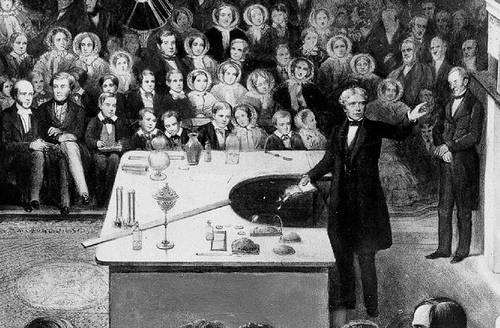
Sailors can navigate Venezuela’s Lake Maracaibo easily at night — the sky is lit with almost continuous lightning 150 nights a year. The flashes are visible for hundreds of miles, but there is no thunder.
No one knows what causes it.

Sailors can navigate Venezuela’s Lake Maracaibo easily at night — the sky is lit with almost continuous lightning 150 nights a year. The flashes are visible for hundreds of miles, but there is no thunder.
No one knows what causes it.
What’s unusual about this game by Joseph Blackburne, apart from its characteristic brilliance?
1.e4 e6 2.d4 d5 3.Nc3 Nf6 4.Bg5 Be7 5.Bxf6 Bxf6 6.Nf3 O-O 7.Bd3 Nc6 8.e5 Be7 9.h4 f6 10.Ng5 fxg5 11.Bxh7+ Kxh7 12.hxg5 Kg8

13.Rh8+ Kxh8 14.Qh5+ Kg8 15.g6 Rf5 16.Qh7+ Kf8 17.Qh8#
“Move for move I played it exactly in the same way twice in one week, once at Hastings and once at Eastbourne, in the year 1894.”
clinomania
n. an excessive desire to stay in bed
“The happiest part of a man’s life is what he passes lying awake in bed in the morning.” — Samuel Johnson
– Attributed (tenuously) to the Marylebone Cricket Club. See Amputee Cricket.
Most Exalted Sir,–
It is with most habitually devout expressions of my sensitive respect that I approach the clemency of your masterful position with the self-dispraising utterance of my esteem, and the also forgotten-by-myself assurance that in my own mind I shall be freed from the assumption that I am asking unpardonable donations if I assert that I desire a short respite from my exertions; indeed, a fortnight’s holiday, as I am suffering from three boils, as per margin. I have the honorable delight of subscribing myself your exalted reverence’s servitor.
– Jonabol Panjamjaub
– An Indian clerk’s request for a holiday, quoted in William Shepard Walsh, Handy-Book of Literary Curiosities, 1892
“In addition to the regalement of the ear from the charm of style to his communication, the eye is gratified by a rough but graphic illustration of the three boils.”

That’s a caricature of Arturo Toscanini by Enrico Caruso.
There are many tales of the conductor’s astonishing musical memory. A clarinetist once approached him just before a performance and said that he would be unable to play because the E-natural key on his instrument was broken.
Toscanini concentrated for a short time and said, “It’s all right. You don’t have an E natural tonight.”
In 1996, 21-year-old John Leonard saw a Pepsi ad that jokingly offered a Harrier fighter for 7 million “Pepsi points.” Under the contest rules, that should have required drinking 16.8 million cans of Pepsi, but Leonard found a loophole — he could earn the points by simply buying them for 10 cents each.
So on March 28 he delivered 15 original Pepsi points, plus a check for $700,008.50 to cover the remainder plus shipping and handling. And when Pepsi failed to deliver the jet, he sued.
He lost in the end — the court ruled that the ad didn’t constitute an offer — but Leonard can still argue that he was in the right. He claimed that a federal judge could not hear his case fairly, and that instead he should have faced a jury of “the Pepsi generation.”
(Thanks, Brendan.)
“The Idiot’s Lament”
Her has come
Her has went
Her has left I all alone
Oh, how can it was
— Anonymous
“The Moron”
See the happy moron,
He doesn’t give a damn!
I wish I were a moron–
My God! Perhaps I am!
— Anonymous

William Gladstone once asked Michael Faraday the practical value of electricity.
“Why, sir,” the physicist replied, “presently you will be able to tax it.”
12 × 42 = 24 × 21
12 × 63 = 36 × 21
12 × 84 = 48 × 21
13 × 62 = 26 × 31
23 × 96 = 69 × 32
24 × 63 = 36 × 42
24 × 84 = 48 × 42
26 × 93 = 39 × 62
36 × 84 = 48 × 63
46 × 96 = 69 × 64
14 × 82 = 28 × 41
23 × 64 = 46 × 32
34 × 86 = 68 × 43
13 × 93 = 39 × 31